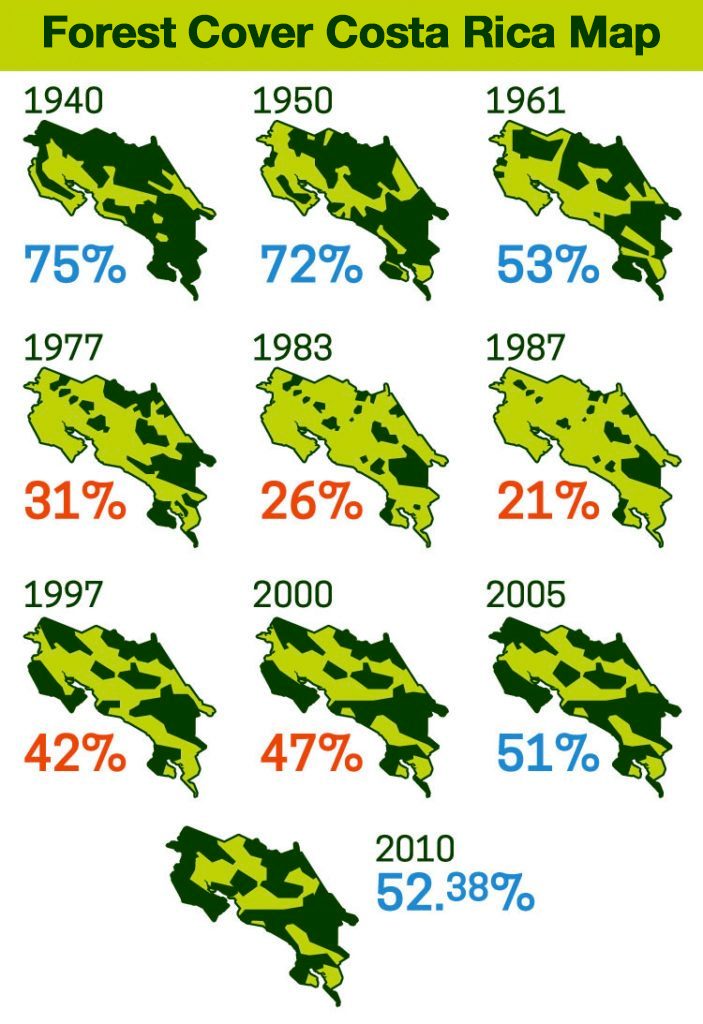In a matter of mere decades, humans have replaced much of the worlds’ lush green forests with concrete jungles: large buildings, and roads that stretch out across the landscape. This expansion of human development and infrastructure has caused serious implications on the original ecosystems occupying the area.
(Image taken from acmcr.org)
Flashback in Time
By specifically accessing the history of Costa Rica’s forests, only then can we begin to look at the impacts human development has caused. Known for its lush, mature old-growth forests, this nation has forests that hold high ecological importance in housing some of the most complex ecosystems in a steady-state fashion. As such, these steady-state or climax communities have species best adapted to the average conditions of that area, with each species filling an ecological niche.
However, the treasures of the forest were soon turned into cash profit for the government. Not only were forests clear-cut for land-use, plants and animals were harvested for medicinal profits as well. As a result, rapid deforestation occurred, and loss of habitat for many species ensued. Bird communities were directly impacted following the devastating rampant deforestation.
Importance of Protected Bird Communities
The difference in significance between protected bird communities and the communities found in human developed areas is evident in the role back to the ecosystem. Protected bird communities contain keystone species that are critical to the health of the ecosystem. For instance, the Great Military Macaw can be found in protected forests in Costa Rica. Protected birds such as the Great Military Macaw plays an critical role in the ecosystem for plant reproduction by spreading the seeds of plants and berries it eats. Given that there are other bird species that protected forests depend on, it is a necessity to determine methods to preserve the integrity of those systems.
Take a look at the video below to learn about Dr. Chan’s findings for best sustaining protected bird communities in Costa Rica.
https://www.youtube.com/watch?v=Fnq_-8QPp78&feature=youtu.be
The Costa Rican government is a leader for the rest of the world in terms of sustainability because of their actions to preserve protected species. In efforts to display the sustainable approach of Costa Rica the podcast below delves into contrasting sustainability outlooks in Costa Rica and China.
https://www.youtube.com/watch?v=8T34OG2zmOM&feature=youtu.be
The time is now, to make a decision to not only nurture our planet for other species, but for our well being as well.
Written by: Ambi Atienza, Molly Fu, Sammi Lu, Flipos Kiflai

